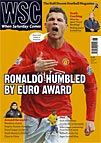 With the credit crunch starting to hit fan's pockets, attendances are suffering. Ashley Shaw looks into how Man Utd are trying to deal with the problem
With the credit crunch starting to hit fan's pockets, attendances are suffering. Ashley Shaw looks into how Man Utd are trying to deal with the problem
The Manchester United Supporters Trust campaign to urge the Office of Fair Trading to investigate the ticket-pricing policy at Old Trafford represents the first skirmish in what could become a war between cash-strapped supporters and football clubs at all levels.
MUST argues that United’s automatic cup scheme (ACS) amounts to an “abuse of a dominant market position… in breach of both the unfair terms in Consumer Contracts Regulations 1999 and the Competition Act 1998”. Put simply United are illegally abusing their monopoly position by forcing their season-ticket holders to pay for tickets they do not want. The campaign has already drawn political support from Liberal Democrat MP Don Foster, who claimed the club was “effectively demanding a blank cheque from the consumer” as failure to sign up to the ACS renders a season ticket invalid.
Manchester United once prided themselves on being among the most inexpensive clubs to follow. However, ticket prices have risen by an average of 60 per cent since the Glazers’ takeover of the club, as the new owners sought to bring the club’s tariffs up to the levels of their London rivals – despite statements to the contrary to the Department of Culture, Media and Sport in the summer of 2005.
According to MUST figures, a season-ticket holder in the North Stand now pays £912 per season with an additional £502 likely to be paid under the ACS – depending on the club’s cup success and the number of home draws – for a total cost of £1,414. The cost for the same seat in 2004-05 was £532, with cup tickets optional. The ACS was marketed by the club as a way for supporters to guarantee they received their usual seat without the hassle of applying for tickets. Yet it quickly became a bone of contention as supporters found they were forced to buy tickets for what are effectively reserve games in the early rounds of the League Cup. With the group stages of the Champions League also losing their allure, there is evidence that supporters squeezed by the economic downturn are abandoning a season-long commitment and picking and choosing games.
Manchester United recognised the anger of supporters last season when David Gill announced an opt-out for League Cup ties for 2008-09. However, those fans who take this up are excluded from applying for away tickets, a source of frustration as priority for them is one of the main perks associated with being a season-ticket holder.
United’s board will no doubt point to crowds that average 75,000 despite the economic downturn and a lengthy waiting list for season tickets. They would also argue that if the prices presently charged were unrealistic, attendances would reflect that. However, anyone keeping an eye on the club’s “ticket news” will know that every home game this season has gone on general sale bar Celtic. There are also reports that a high number of executive boxes have stood vacant for games – clearly United are not immune to the economic downturn.
Nor is this a problem restricted to the champions. Fans of almost every club have grounds for complaint, with a Football Supporters’ Federation survey taken before this autumn’s financial meltdown showing that nine out of ten supporters believed the Premier League is too expensive. Meanwhile there is plenty of evidence that gate prices lower down the pyramid have been artificially inflated in line with the Premier League – it is a startling fact that it is now cheaper to watch a Bundesliga match than a game between part-timers at the fifth level of the English game.
While it’s clear some common sense needs to prevail, any government decision to restrict prices would have a knock-on effect on revenues. With a majority already in debt and levels of credit not as readily available as they were previously, Premier League clubs would resist government attempts to reduce or freeze prices.
However, failure to act could lead to half-empty stadiums and complaints from satellite television that the product they bought is not as advertised. The consequences for the next round of television-rights negotiations would be grave, with clubs such as United driven to try to leave the collective bargaining agreement because of interest payments on the debt used to finance the Glazers’ purchase.
Should the OFT decide to investigate MUST’s claims, the authorities may finally recognise a game that is becoming financially unsustainable, with many of the Premier League’s biggest names most at risk.
From WSC 263 January 2009